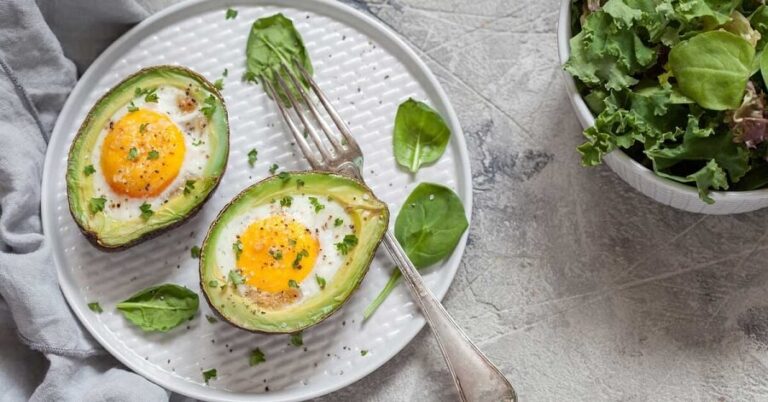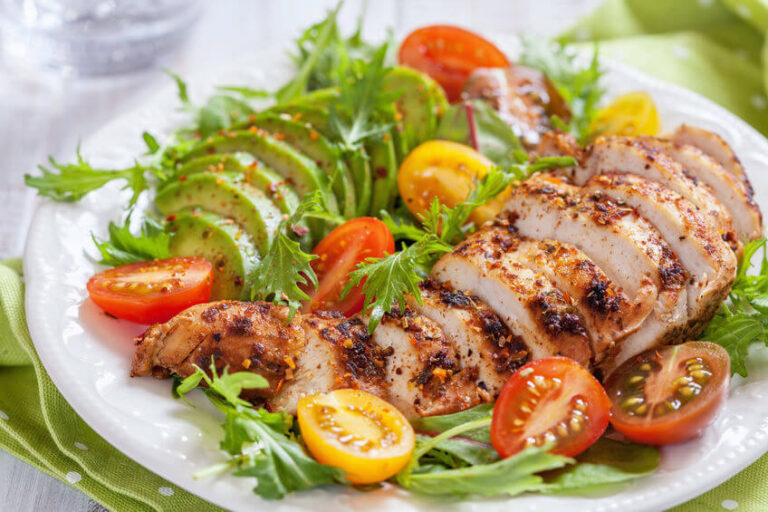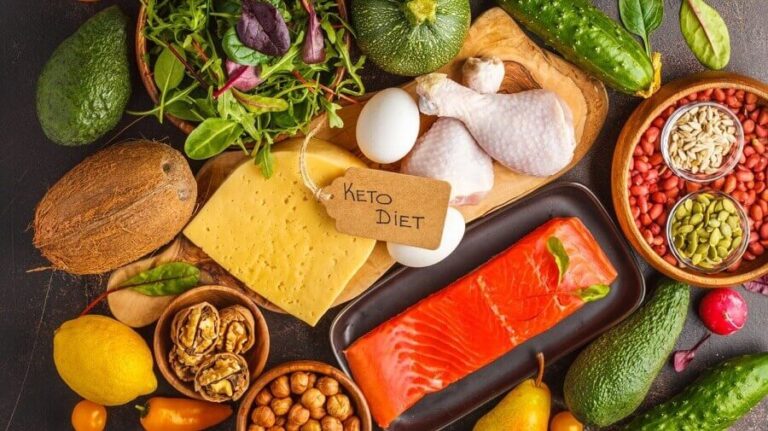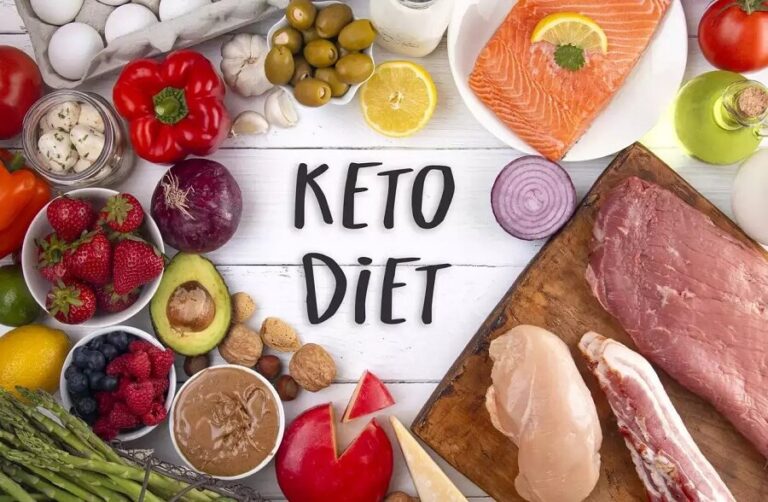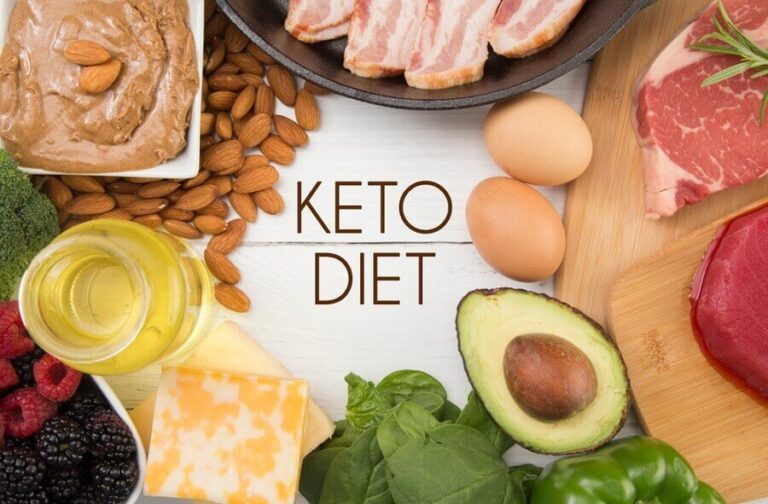People on restrictive diets, such as the keto diet, may not get all their nutrients. Those who choose low-carb diets for either weight loss or health management may not get enough vitamins and minerals, such as thiamine, folate, vitamin C, magnesium, iron, vitamin D, vitamin E, and calcium.
To make sure your body works well on a low-carb diet, you need to consider the sources of each of these micronutrients. To get the recommended daily intake for each, try to include a variety of foods in your meals and healthy snacks throughout the day.
The following are the most common nutrients that may be missing if you are on the ketogenic diet:
- Thiamine
Thiamine, also called B1, is essential for brain and nervous system function. Adult women should consume 1.1 mg, and men should consume 1.2 mg of thiamine daily.
This vitamin is prone to destruction in food processing, storage, and cooking. For this reason, doing the keto diet in its dirty version is a nutrient that may be lacking.
Many non-starchy vegetables provide .06 to .09 mg of thiamine per cup. Nutritional yeast or brewer’s yeast can also provide thiamine, but look for a sugar-free variety. Some brands are fortified with B vitamins, so one teaspoon of nutritional yeast will give the recommended daily intake.
Low Carb Sources of Thiamine:
- Pork tenderloin: 3 ounces uncooked = 0.5 mg thiamine
- Macadamia nuts: 1 ounce = 0.3 mg thiamine
- Pecans: 1 ounce = 0.2 mg thiamine
- Peanuts: 1 ounce = approximately 0.2 mg thiamine
- Flaxseed: 1 tablespoon = 0.2 mg of thiamine.
- Asparagus: 1 cup = 0.2 mg thiamine
- Chicken livers: 3 ounces = 0.1 mg thiamine
- Folate
Folate is necessary for many chemical reactions in the body and plays a role in forming new cells, especially the formation of red blood cells. Adult women and men should consume 400 mcg of folic acid per day. (Pregnant women need more).
Folate is also known as vitamin B9 and is commonly found in whole foods. Folic acid is found in supplements and fortified foods.
Low Carb Folate Sources:
- Chicken livers: 3.5 ounces = 578 mcg of folate
- Avocado: half an avocado = 80 mcg of folate
- Asparagus: 1 cup = 70 mcg of folate
- Romaine lettuce: 1 cup = 64 mcg of folate
- Spinach: 1 cup raw = 58 mcg of folate
- Broccoli: 1 cup, minced = 57 mcg of folate
- Brussels sprouts: 0.5 cup cooked = 47 mcg folate
- Salmon, crab, lamb, and most green vegetables are also good sources of folate.
- Vitamin C
Vitamin C is probably one of the best-known essential nutrients. This vitamin is necessary for collagen production and protects our cells from damage and infection. Adult women should consume 75 mg and men should consume 90 mg of vitamin C each day.
Vitamin C breaks down quickly during storage and cooking. To improve the vitamin C content of your food, keep produce fresh and try not to overcook it.
Low carbohydrate sources of vitamin C:
- Red pepper: 0.5 cup raw = 95 mg of vitamin C
- Strawberries: 1 cup sliced = 89 mg of vitamin C
- Broccoli: 1 cup chopped, raw = 81 mg of vitamin C
- Green pepper: 0.5 cup raw = 60 mg of vitamin C
- Brussels sprouts: 0.5 cup raw = 48 mg of vitamin C
- Cauliflower: 1 cup = 46 mg of vitamin C
- Grapefruit: 0.5 fruits = 38 mg of vitamin C
- Cabbage: 1 cup, raw, chopped = 33 mg of vitamin C
- Other good sources of vitamin C are kale and other green leafy vegetables, raspberries, green beans, and cantaloupe. Almost all fruits and vegetables have some vitamin C.
- Magnesium
Magnesium plays a vital role in the body in supporting protein synthesis, development and maintenance of bones, DNA synthesis, and cell function. Many of us don’t get enough magnesium. In fact, according to the WHO, the lack of magnesium is one of the most common deficits. In the US, most adults and adolescents do not meet the recommended daily magnesium intake. (1)
People on low-carbohydrate diets may need magnesium more than others, which is essential for glucose metabolism and blood sugar control. Adult women should consume 320 mg and men should consume 400 mg of magnesium daily.
Unfortunately, people on low-carb diets can have even worse results. In one study, about half of people on the keto diet were not getting enough magnesium. (2)
Low Carb Magnesium Sources:
- Soybeans: 1 cup raw = 521 mg of magnesium
- Pumpkin seeds: 1 cup = 168 mg magnesium
- Almonds: 28 grams = 77 mg of magnesium
- Peanuts: 28 grams = 48 mg of magnesium
- Flax seeds: 1 tablespoon = 40 mg of magnesium
- Spinach: 1 cup raw = 24 mg of magnesium
- Other good sources of magnesium are legumes, fish, greens, and Greek yogurt.
- Iron
Iron is essential to our health. Without it, our cells cannot get oxygen. Iron is responsible for the formation of hemoglobin, improves the quality of our blood, and increases resistance to disease and stress.
People who follow low-carbohydrate diets tend to consume less iron than they should. On keto vegetarian or vegan diets, this is even more prevalent. Adult women should consume 18 mg of iron per day. Mature men at least 8 mg per day.
Low Carb Iron Sources:
- Soybeans: half a cup = 15 mg of iron
- Chicken liver: 100 grams = 9 mg of iron
- Beef liver: 100 grams = 5 mg of iron
- Beefsteak: 100 grams = 4 mg of iron
- Asparagus: 1 cup = 3 mg of iron
- Spinach: 1 cup raw = 1 mg of iron
- Vitamin D
Vitamin D is required to maintain and balance calcium and phosphorus in the body. Sun exposure provides many of us with the amount we need. However, getting enough vitamin D can be difficult if not supplemented with food sources.
Vitamin D deficiency is becoming more and more common. Some believe it may be because people spend less time outdoors, especially in winter and areas far from the equator.
The recommended vitamin D intake is 600 IU daily for adult men and women.
Low carbohydrate sources of vitamin D:
- Sardine – 500 IU per 100 g
- Catfish – 440 IU per 100 g
- Beef liver – 350 per 100 g
- Salmon – 340 IU each 100 g
- Canned tuna – 235 IU each 100 g
- Chicken eggs – 20 IU each 60 g.
- Mushrooms – (Variable)
- Yogurt – 100 IU per 100 g.
- Vitamin E
Vitamin E is a fat-soluble vitamin that functions as an antioxidant. There are eight different forms of vitamin E, which is why it is one of the reasons why it is best to get vitamin E from food. Vitamin E supplements generally only contain one or two forms.
Vitamin E is essential for a correct hormonal balance, strengthens the immune system, and improves skin health. Including foods with vitamin E in the keto diet is necessary to avoid suffering the consequences of a lack of nutrients.
The recommended vitamin E intake is 15 mg per day for adult men and women. Low carbohydrate sources of vitamin E include:
Low carbohydrate sources of vitamin E:
- Sunflower seeds – 1 / cup – 82% RDA
- Almonds – 1 / cup – 82% RDA
- Spinach – 1 cup – 40% RDA
- Avocado – 1 cup – 21% RDA
- Peanuts – 1/4 cup – 20% RDA
- Asparagus – 1 cup – 18% RDA
- Shrimp – 100 g – 17% RDA
- Football
Calcium performs many functions in the body, but it is best known for building bone mass and maintaining bone structure. Eating foods rich in calcium is also vital for the operation of our muscles and nerves and for maintaining the correct acid/base balance.
The recommended calcium intake is 1000 mg per day for adult men and women. Low carbohydrate sources of calcium include:
- Fish with bones, sardines, tuna, salmon.
- Milk and yogurt
- Cheeses
- Kale
- Soy milk and tofu
- Almonds
- Fruits of the sea
- Black beans and other legumes
- Broccoli
RELATED:
- Keto Flu – What is it, and what are its symptoms?
- Keto diet for beginners – Phase 1
- Sweeteners allowed on the ketogenic diet
Does not meeting the RDA mean you have a nutrient deficiency?
There are differences between having a condition diagnosed from a nutrient deficiency (such as rickets or anemia), having a low nutrient level in your blood, and not getting the recommended daily allowance (RDA) of a particular nutrient in your diet.
Your healthcare provider can do blood tests and other screenings to ensure your body is getting the nutrients it needs to function correctly. If you have further questions about a possible vitamin deficiency on a low-carb diet, speak with your healthcare provider or a registered dietitian.
ABSTRACT
Going on a diet such as a keto can be difficult, but knowing what nutrient deficiencies can develop and how to overcome them can help set you on the path to success, reduce cravings, and increase energy.
Pay particular attention to including a variety of foods in your meal plan full of micronutrients, such as folate, iron, magnesium, and vitamin C, and consider supplementing with a highly-absorbed multivitamin that contains B vitamins.


